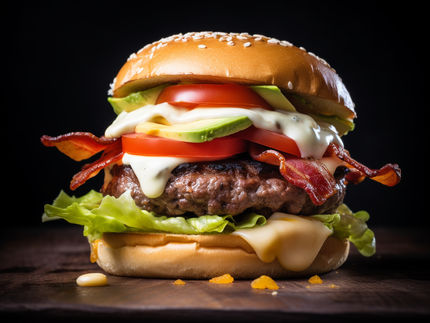UN health agency backs away from call to tax sugary drinks
Advertisement
An independent World Health Organization panel is backing away from the U.N. health agency's own call two years ago to tax sugary drinks, in a new report on diseases like cancer, obesity and diabetes that some experts slammed as being "conspicuously limp."
International health experts said the decision was especially baffling, given the rising obesity crisis worldwide and WHO's own previous attempts to curb sugar consumption.
In 2016, the U.N. health agency urged countries to tax sugar-laden drinks like sodas and sport drinks as a way to fight obesity and diabetes. Back then, it said a 20 percent price increase in such drinks would dramatically cut consumption.
But in a report published Friday, although WHO recommended taxes on tobacco and alcohol, experts pointedly dropped any recommendation to tax sugary beverages. The experts wrote instead that, regarding sugar taxation, "some views were conflicting and could not be resolved."
Dr. Sania Nishtar, co-chair of the recently created independent commission on non-communicable diseases behind the report, said most of its 26 members supported a tax on sugar sweetened beverages. But one commissioner - whom she did not identify - hampered drafting stronger language, mainly over the effectiveness of the sugar tax that has been introduced in some countries.
"The introduction of the tax (on sugary drinks) is fairly recent, and the data that we have relates to a decrease in consumption," Nishtar told reporters at WHO headquarters.
She said "the objection was that ... we should not make a bold recommendation." She said the commissioner did not believe there was enough health data on this yet - a point later disputed by WHO's own director-general, Tedros Ghebreyesus.
While the sweetened-drink industry has come out strongly against any such tax, Nishtar said she was not aware of any industry lobbying of the commissioners.
Instead of explicitly recommending a sugar tax, WHO is leaving such decisions up to countries.
"When engagement with the private sector fails to contribute to the achievement of public health goals, governments should employ their regulatory and legislative powers to protect their populations," the report says.
Jack Winkler, an emeritus professor of nutrition policy at London Metropolitan University, said there is now convincing evidence that taxing sugary drinks works, citing, among other work, a recent article in the journal, The BMJ. He said policies recently adopted in Britain show that taxing sugar-loaded drinks not only spurred manufacturers to reformulate their products but that "it has made the healthy choice the cheaper choice."
He said WHO's own acknowledgment that progress on combating obesity and other non-communicable disease has been slow makes their refusal to endorse sugar taxes outright especially unfortunate.
"When WHO doesn't pick up on a practical solution that also raises money, it is particularly absurd," he said.
In its new report, WHO also recommended governments prioritize measures to restrict junk food advertising.
"WHO should explore the possibility of establishing an international code of conduct on this issue...while acknowledging the need for partnerships based on alignment of interests," experts wrote.
Martin McKee, a professor of European public health at the London School of Hygiene and Tropical Medicine, said the failure of WHO's commission to reach an agreement on sugar taxes was "difficult to fathom."
He noted that since this was the only the first report from WHO's expert commission, they might still revise their advice in later reports.
"It would be very disappointing if this issue remained unresolved in its next report," McKee said.(dpa)


































































